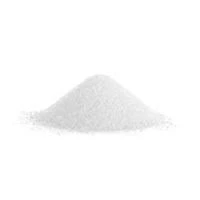
tri chloro isocyanuric acid
Understanding Trichloroisocyanuric Acid Uses, Benefits, and Precautions
Trichloroisocyanuric acid (TCCA) is a powerful chemical compound widely recognized for its applications in water treatment, disinfection, and sanitation. It is part of a class of chemicals known as chlorinated isocyanurates, which are characterized by their trichloro-substituted structure. This compound has gained significant attention due to its efficacy in killing bacteria, viruses, and algae, making it an essential tool in both residential and commercial settings.
Chemical Composition and Properties
TCCA has a chemical formula of C3Cl3N3O3 and is typically found in a white crystalline form. It is highly soluble in water, releasing chlorine as it dissolves. This chlorine release is key to its disinfecting capabilities. Being a stabilized form of chlorine, TCCA has a slower release rate compared to traditional chlorine compounds, allowing for prolonged effectiveness, which is especially beneficial in environments requiring ongoing sanitation efforts.
Applications
The primary usage of TCCA is in water treatment. It is frequently used in swimming pools, spas, and potable water systems to maintain hygiene and safety. The compound effectively eliminates harmful microorganisms, preventing waterborne diseases and ensuring a safe environment for recreational and drinking purposes. The usage of TCCA in swimming pools not only maintains crystal-clear water but also protects swimmers from pathogens that could thrive in untreated water.
In addition to water treatment, TCCA is also employed in the industrial sector for disinfecting equipment and facilities. It is useful in agriculture as well, being used for water disinfection in irrigation systems and for treating animal drinking water, thereby improving the health and productivity of livestock.
Moreover, TCCA finds application in biosecurity protocols to disinfect surfaces and instruments in healthcare settings. With the recent global health challenges, the role of potent disinfectants like TCCA has become even more crucial in curbing the spread of infectious diseases.
tri chloro isocyanuric acid

Benefits of TCCA
One of the standout benefits of trichloroisocyanuric acid is its stability. It can store for extended periods without significant loss of efficacy, making it a convenient choice for both personal and professional use. Additionally, its ability to release chlorine gradually ensures that treated water remains disinfected over a longer duration, reducing the frequency of application.
TCCA is also highly effective against a broad spectrum of pathogens, including bacteria, viruses, and fungi. This versatility makes it a preferred choice in various sectors, from recreational facilities to agricultural enterprises.
Precautions and Safety Measures
While TCCA is an effective disinfectant, it is essential to handle it with care. The compound is considered a strong oxidizer, which means it can pose risks if mixed with incompatible materials, such as certain organic substances or other types of chemicals. Proper storage in a cool, dry place away from direct sunlight and heat sources is crucial to maintaining its stability and preventing hazardous reactions.
Users must also adhere to safety precautions, including wearing protective gear such as gloves and goggles when handling TCCA. It is important to follow the manufacturer's guidelines regarding dosage and application methods to ensure safety and effectiveness.
Conclusion
Trichloroisocyanuric acid is a versatile and powerful compound widely used in disinfection and water treatment. Its effectiveness against a variety of pathogens and ability to provide long-lasting sanitation make it an invaluable asset in many industries. However, safety should always be the priority when handling TCCA, ensuring that it can continue to serve as a reliable disinfectant while minimizing any potential hazards. Through proper understanding and responsible usage, TCCA can significantly contribute to public health and safety in a variety of settings.
-
Buy High-Quality Trichloroisocyanuric Acid for Sale | TCCA 90% SupplierNewsAug.30,2025
-
Pure Sodium Dichloroisocyanurate Dihydrate | Powerful DisinfectantNewsAug.29,2025
-
Industrial Chemicals: Quality & Purity for Every IndustryNewsAug.28,2025
-
Nitrile Rubber Honoring Strict Production StandardsNewsAug.22,2025
-
Aspartame Ingredients Honoring Food Safety ValuesNewsAug.22,2025
-
Fertilizer for Balanced Plant NutritionNewsAug.22,2025
-
Cyanide Gold Processing with High Purity AdditivesNewsAug.22,2025
Hebei Tenger Chemical Technology Co., Ltd. focuses on the chemical industry and is committed to the export service of chemical raw materials.
-

view more DiethanolisopropanolamineIn the ever-growing field of chemical solutions, diethanolisopropanolamine (DEIPA) stands out as a versatile and important compound. Due to its unique chemical structure and properties, DEIPA is of interest to various industries including construction, personal care, and agriculture. -

view more TriisopropanolamineTriisopropanolamine (TIPA) alkanol amine substance, is a kind of alcohol amine compound with amino and alcohol hydroxyl, and because of its molecules contains both amino and hydroxyl. -

view more Tetramethyl Thiuram DisulfideTetramethyl thiuram disulfide, also known as TMTD, is a white to light-yellow powder with a distinct sulfur-like odor. It is soluble in organic solvents such as benzene, acetone, and ethyl acetate, making it highly versatile for use in different formulations. TMTD is known for its excellent vulcanization acceleration properties, which makes it a key ingredient in the production of rubber products. Additionally, it acts as an effective fungicide and bactericide, making it valuable in agricultural applications. Its high purity and stability ensure consistent performance, making it a preferred choice for manufacturers across various industries.





